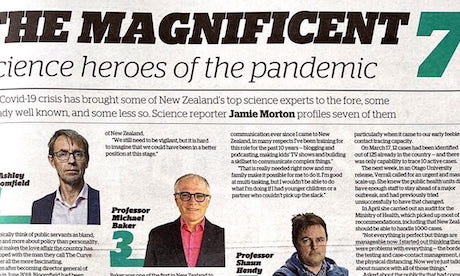Bolstered by scientific evidence, virtue ethics can help nations reopen not just economically but morally, too, according to a post in The Conversation.
New Zealand is held up as an excellent example of virtuous pandemic policymaking even considering its advantages in having wealth, low density and no land borders say Mary Elizabeth Collins and Sarah B Garlington.
They propose three core virtues to guide policymakers in easing out of coronavirus crisis mode in ways that achieve a better new normal: compassion, solidarity and justice.
And it isn’t enough to apply just one virtue in a crisis of this magnitude. All three should be deployed in combination.
The writers say New Zealand’s virtuous pandemic policymaking included not only aggressive public health measures but also a well-articulated message of being united in the COVID-19 fight and recurring government payments, so workers did not have to risk their health for their job.”
They note that to achieve acts of solidarity, the leaders are most praised in their countries and abroad- from U.S. National Institutes of Health director Dr Anthony Fauci to New Zealand prime minister Jacinda Ardern – have relied primarily on moral persuasion, not threats of punishment.
“By delivering clear information, giving simple and repeated behavioural guidance, and setting a good example, they’ve helped convince millions to take personal responsibility for protecting their community.”
Collins and Garlington’s ethics research examines the potential for using virtues as a guide for a more moral coronavirus response.
“Virtues are applied morals – actions that promote individual and collective well-being,” they say.
“While often embedded in religion, virtues are ultimately a secular concept.
Because of their broad, longstanding relevance to human societies, these values tend to be held across cultures.”
Using virtues to guide social policies is an old idea. It dates back at least to the Greek thinker Aristotle.
Source
- theconversation.com
- Image: pmcsa.ac.nz
